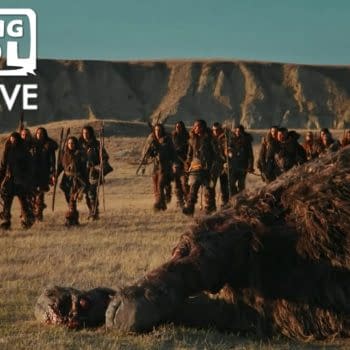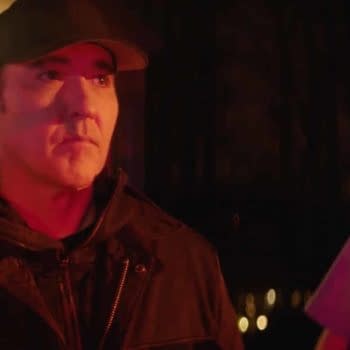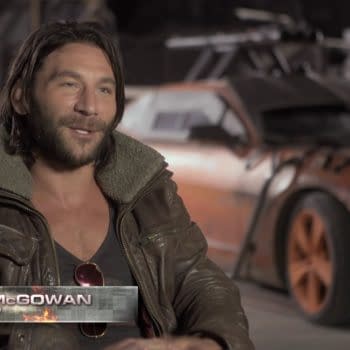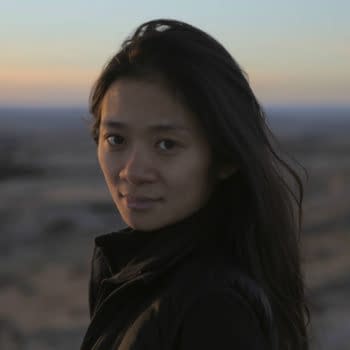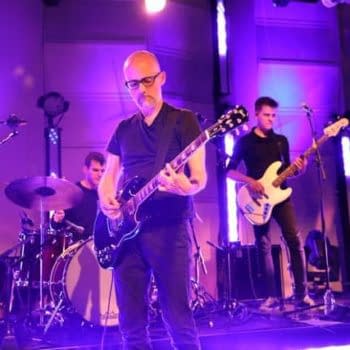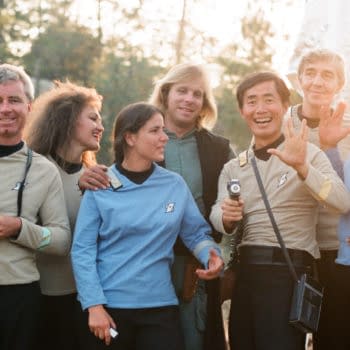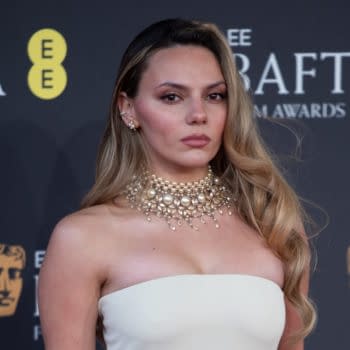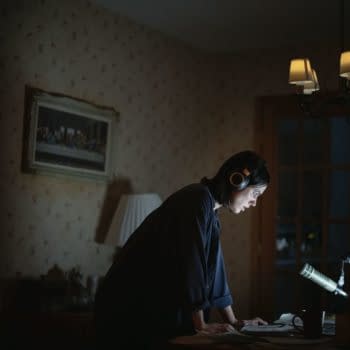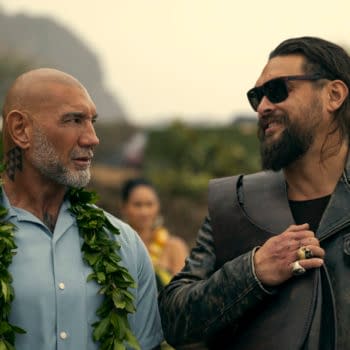Posted in: Movies | Tagged: documentary, film
'Eating Animals' Makes You Reconsider Eating Animals
I consider myself a pretty hardcore carnivore, so when I first heard about Eating Animals, I was reticent to watch for fear it would be a 95-minute guilt fest.

The good news is the goal of the movie is not to shame you out of participating in carnivorous or omnivorous eating habits, though it does want you to reconsider where your food comes from. Directed by Christopher Dillon (God Grew Tired of Us), based on the book by Jonathan Safran Foer, and narrated by Natalie Portman (who also serves as a producer), the documentary is a sometimes harrowing look at where your food comes from.
One of the true stars of the documentary is Frank Reese and his heritage birds. Frank cares for his fowl more than most people care for their own families. In one scene he's loading turkeys off to be processed, and a particularly resistant bird escapes. Instead of wrangling the rebel back onto the truck, he sweetly goes "you're not ready to go yet" and allows the bird to return to the flock.
I had the chance to sit down with Reese and Dillon and to sample some of the heritage birds in what may have been the best meal of my life at Berkeley's famous Chez Panisse restaurant. Famous chef Alice Waters is a Frank Reese/Heritage bird mega fan herself. While I felt a sense of guilt eating the birds I'd seen on screen, it was at least a relief knowing they'd been raised humanely.
One frustration I had with the film is while it's quick to highlight the problems of factory farm-raised meats and destroy any image one had of "free-range chickens" (they show the locations where chickens that eventually get labeled as such are raised, and let me tell you, those are not healthy-looking chickens), it fails to point out a budget-sustainable solution that involves continuing to eat meat.
Trust me, I would love to be able to afford Frank's turkey and chickens, but a 8-10 lb. heritage turkey is about $79+ shipping right now. Still, Eating Animals was horrifying — but in a good way.
I also learned more than I ever thought I would about birds. Here are some highlights from our conversation:
On if he ate meat before making the movie, Quinn says:
"I did eat meat, I eat it still; I'd like to think that I'm a meat eater, or I should say I'm a meat eater. Although I eat such a tiny amount of it. Going through the process of making the film has really kind of radicalized my diet in an enormous way where, you know, 99% of the meat out there is meat that I would never consider eating. So it pretty much narrows you [to] eating meat unless you really know where it comes from."
On the most logistically challenging part of the shoot:
"Well, of course, I think the most challenging locations in places were the factory farms. The cordoned-off areas where we were welcome and, you know, there's ag-gag laws. These are laws — state laws — that forbid you from filming inside factory farms. So that was the biggest challenge. And whenever you came up against one of these facilities — I can't call them farms, they're facilities. We were encountered time and time again with the– and I can't call them farmers, I can call them managers. The managers were really unhappy that we were there, and those that always presented challenges.
One of the more [difficult] jobs of all places was [when] we were filming in Nebraska at the US Meat Animal Research Center, which is a secretive — or unknown, I should say — center that works to try and accelerate meat production. I think they try and raise animals and figure out a way how they can do it faster and more cost effective. And that was a place that the USDA really doesn't have any interest [in] people knowing that it exists. And so that was really the most challenging place, and shortly after we filmed there the guy that took us to show them was visited by the FBI and from the eco terrorist unit that visited, knocked on his door. So it was probably the most challenging spot."
Frank Reese on the most unique birds in his flock:
"Two of them come to mind right away. One of them is the Aylesbury duck, which is on the critically endangered list worldwide. It is a historical duck from England; it goes back many hundreds of years, and they're probably down to less than 300 worldwide. That, probably, and then most all of the other kind — I grow a lot of white chickens, which are extremely rare, and most of my turkeys are highly endangered. I probably have the only flock of any size of the old White Holland Turkey.
So, a number of the breeds, most all of them, are in some form of trouble. Some of them may just be moderately on a critical list; most of them there's probably no more than maybe 2000 of them left in the world. [They're] divided up in very small farms, so we need to do something about [it], because when they're gone they're gone forever; we can never bring them back."
Quinn:
"And I think the importance besides the extinction is their genetics. These are animals, [and] if we're gonna produce animals for food, these breeds actually have the nutritional profile that really is good, wholesome food. It can be argued whether you eat an animal or not, that's one thing. But if you're going to eat an animal, you know… I always found it staggering — but to get the nutritional equivalent of one of Frank's birds, you have to eat six of the factory farm commodity birds."
Reese on reviving preserving bird genetics:
"We're losing our biodiversity at a very rapid rate–
Quinn: And with chickens, that is no good. It's not like you can bank them and freeze them. It doesn't work with chickens [like] it does with other animals.
Reese: Yeah, what he's talking about is, as you know, there's an realization not far from where he lives where the government is collecting semen and eggs and in vitro fertilization and freezing them — cryo them and freezing them. And so the future is sort a bank; an ark, like they have with the seed bank. And you can't do this with chickens. You can't freeze an egg and bring it back to life. I've been reading a lot about this Dr. Alison Martin from the Livestock Conservancy in North Carolina, who has a lot of relationships with these people that he's close to and that are in Denver, Colorado, from Boulder. They still haven't figured out a way to do this."


